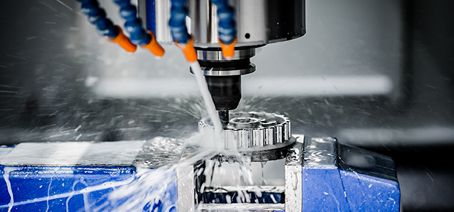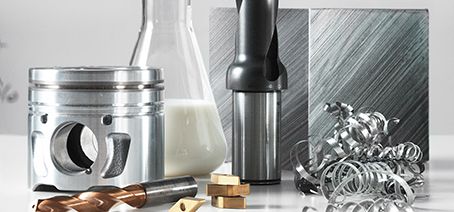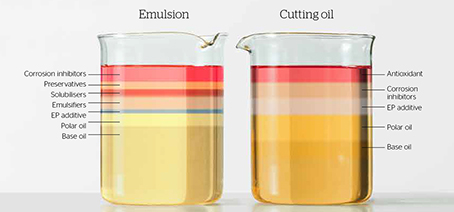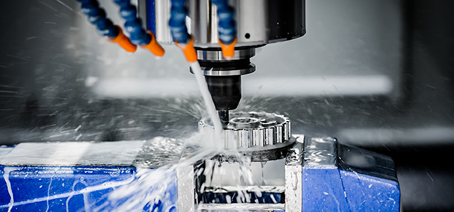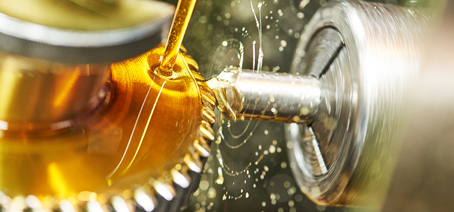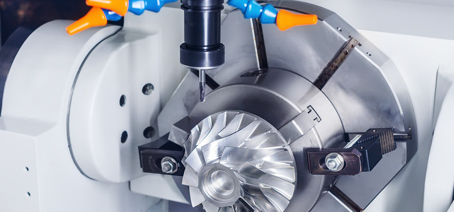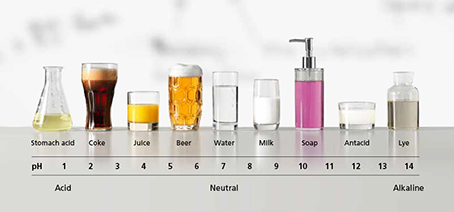Cutting Fluids
The right cutting fluid – equally important as the right tool
Choosing the right cutting fluid product for metalworking is a good example of minor details making a major difference.
With the right cutting fluid you can reduce the number of unplanned stoppages and increase the life of both the tool and the cutting fluid. This means you can increase capacity utilization, thereby reducing the cost per produced unit. With the right cutting fluid, the right checks and the right handling, you can keep production at a consistently high level – both in terms of quality and efficiency. In certain cases, you can even reduce one or more stages in the production process, saving both time and money.
So, in other words, it pays to keep an eye on how cutting fluids work and how they should be handled. We have cutting fluids for every kind of need, and we can help you find the optimum products for your particular field of operation.
We want to share our key knowledge of cutting fluids: from composition and the role of the various additives, to how they can improve your bottom line.
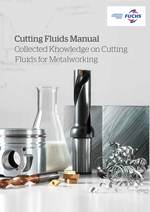
Handbook
Collected Knowledge on Cutting Fluids for Metalworking
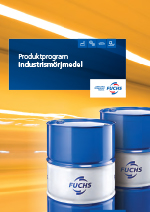
Product program
Our complete product program for industrial applications (in Swedish).
What are cutting fluids made of?
Metalworking fluids can be divided into water-miscible fluids (emulsions, semi-synthetics and synthetics) and neat oils. Learn more about water-miscible cutting fluids, cutting oils and lubricating additives.
A cutting fluid’s main tasks
Cutting fluid is used to cool, lubricate and remove metal particles, swarf and dirt from the machine, which can otherwise increase wear on the machine and tools.
Cutting emulsion vs. cutting oils
Learn more about emulsions (coarse emulsion, macroemulsion), semi-synthetic fluids (microemulsions) and synthetic fluids (solutions) compared to cutting neat oils.
How to choose the right cutting fluid?
The choice of cutting fluid depends on the material being machined and the types of machine being used. Most machines work fine with both water-miscible cutting fluids and cutting oils, while others are more adapted to a type of product.
Filling of cutting fluids
About filling of cutting fluids and changing cutting oils & water-miscible cutting fluids (emulsions). What to think about when changing the whole system, part-draining the system or dilution-feeding the new product.
Handling and maintenance of cutting fluids/systems
With the right checks and the right handling, you can keep production at a consistently high level – both in terms of quality and efficiency.
